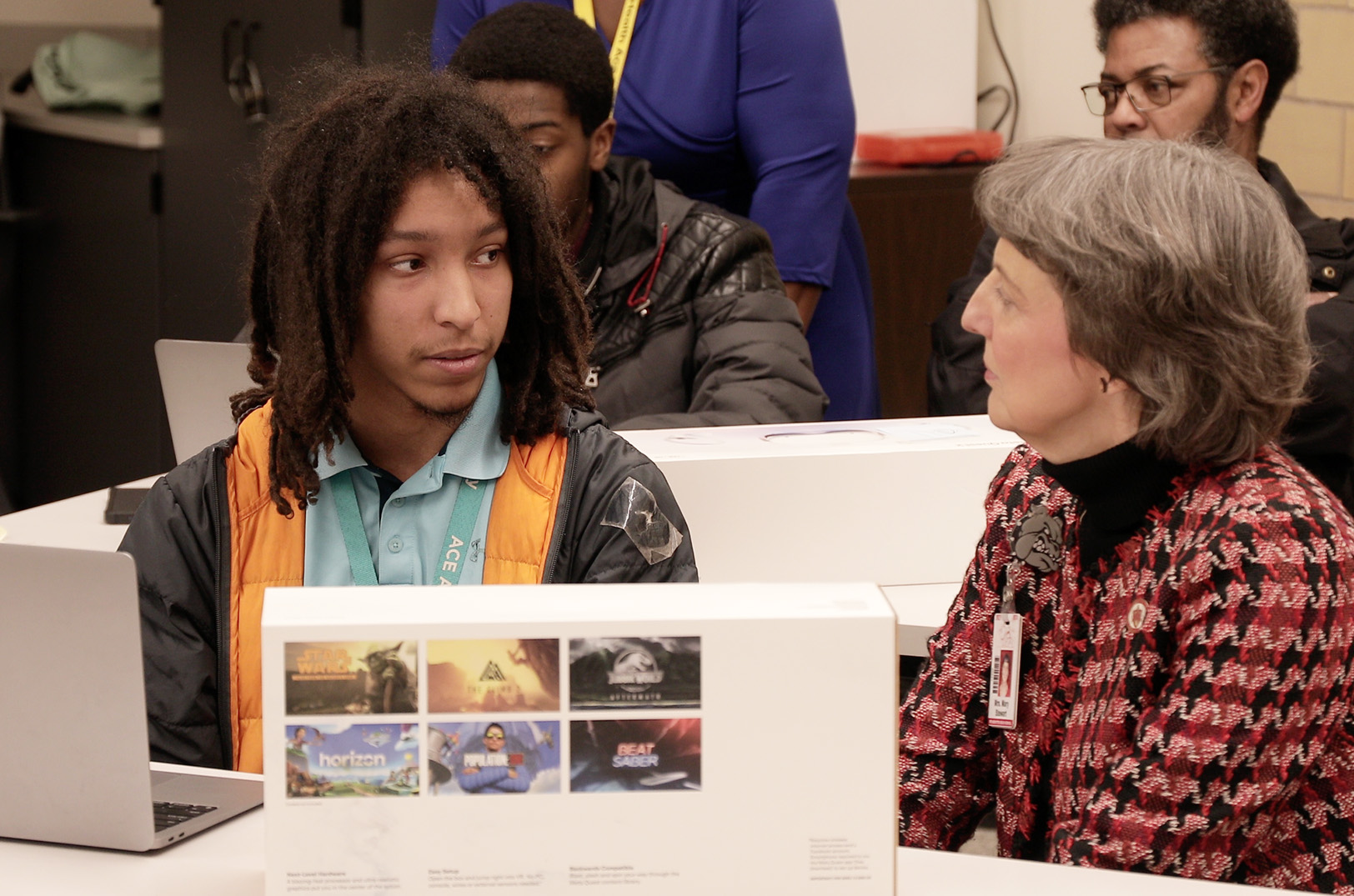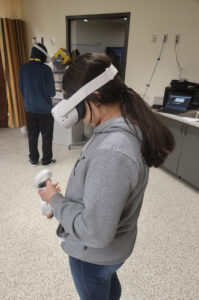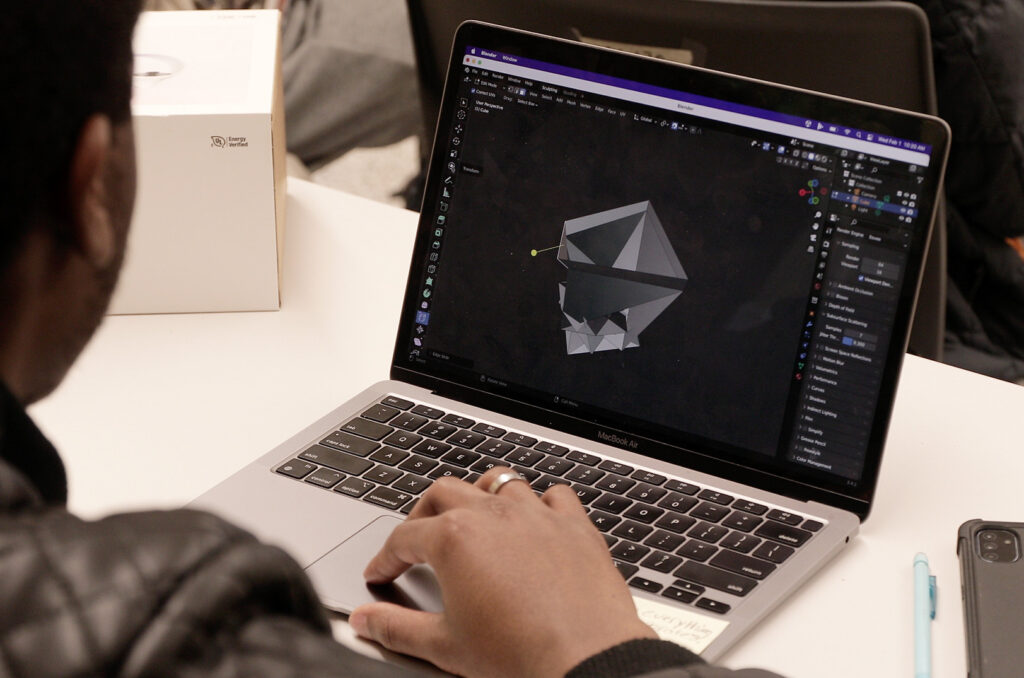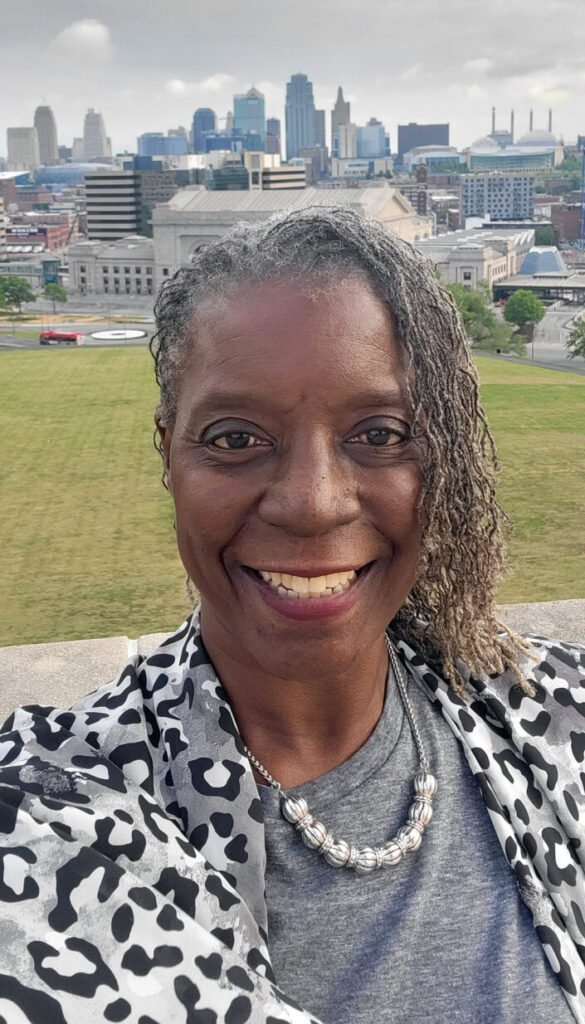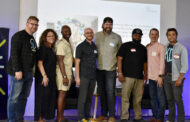Students at two Kansas City, Kansas, high schools are tackling teen mental health issues with the help of virtual reality, shared youth and tech advocate Ina P. Montgomery.
From February through April, 28 students from Wyandotte and JC Harmon high schools learned Unity programming software, identified and researched a health concern for youth ages 13 to 18, and developed a VR prototype as a solution during the VR in Healthcare initiative by Urban TEC, a nonprofit digital literacy education organization that provides tech and soft skills training for future technology careers.
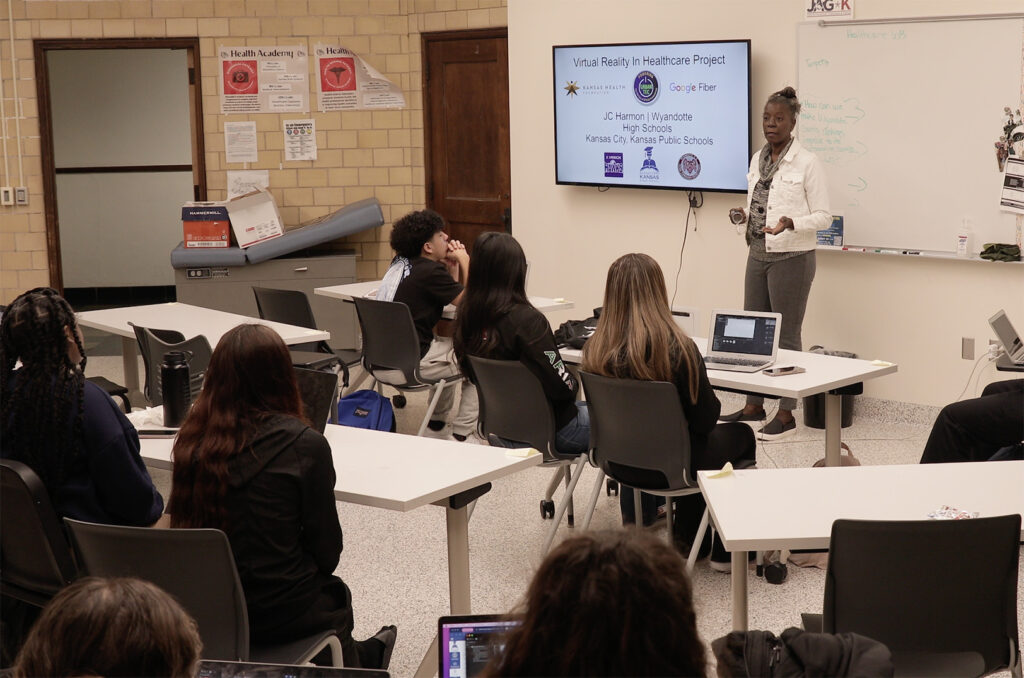
Ina P. Montgomery, Urban TEC, leads a classroom of JC Harmon teens in a Virtual Reality in Healthcare Project
Montgomery, the founder and executive director of Urban TEC — and who also is a K-12 STEAM educator and founder of the Brothers in Technology Conference and Sisters in STEM program — said this initiative is allowing the students to gain real world learning skills.
“It’s letting them see what’s possible that they did not know about before,” Montgomery explained. “And it’s definitely exposing them to careers of the future because virtual reality is always going to be there.”
After attending a VR demo for healthcare last year at the T-Mobile Campus and receiving a grant from the Kansas Health Foundation and Google Fiber, Montgomery — who is a steering committee member for the Kansas City Coalition for Digital Inclusion — developed the curriculum for the program and formed a partnership with the KCK school district.
“So when I see things, the first thing I always ask is, ‘When is this gonna come to the hood?’” she said. “‘When are Black kids going to have a chance for this type of opportunity?’”
FROM THE ARCHIVES: Urban TEC is building a more diverse STEM workforce
The four Wyandotte teams and three JC Harmon teams all chose topics dealing with mental health, Montgomery shared, including depression, suicide, body image, and the lingering effects of the the COVID pandemic in the classroom. At the end of the program, the teams presented their projects in front of a panel of judges on April 24 at Junior Achievement of Greater Kansas City.
“They were so good,” she noted of the students’ presentations. “Because when the judges were asking questions, they were shooting out the answers. I was just really impressed.”
The overall winning project was by a Wyandotte team that tackled the topic of depression and the top JC Harmon project dealt with body image. For the VR in the winning project, Montgomery explained, the user started in a dark room and then followed the light into different rooms to explore different ways to handle depression.
“The kids did an excellent job,” she added. “The teachers are already saying the students want to know how this is going to continue.”
Because of the excitement surrounding the program, Montgomery said, she is exploring raising more funds to bring the two teams together to continue to build out one of their prototypes.
“The superintendent (Anna Stubblefield) and the other judges pointed out that the kids had the liberty to choose whatever topic they want and the irony that they all chose topics dealing with mental wellness,” she noted. “The superintendent was saying that’s something they need right now. If the kids are in this mental state, let’s create something with virtual reality. They put the headset on and they’re able to get help. So that’s the next step of that project and I’m excited about that.”
Montgomery mentioned that she is also exploring the possibility of expanding the program further in the district and outside to other districts. Like the cybersecurity program she taught at Central High School in KCMO, she likes that the IT and programming skills the students learn in these classes can get them ahead and help them earn income now.
“It opened up their eyes to see the possibility,” she explained, and so they understand. ‘You don’t have to wait till you graduate. You don’t have to wait till you get certification. You can be getting this real world experience now.’”





